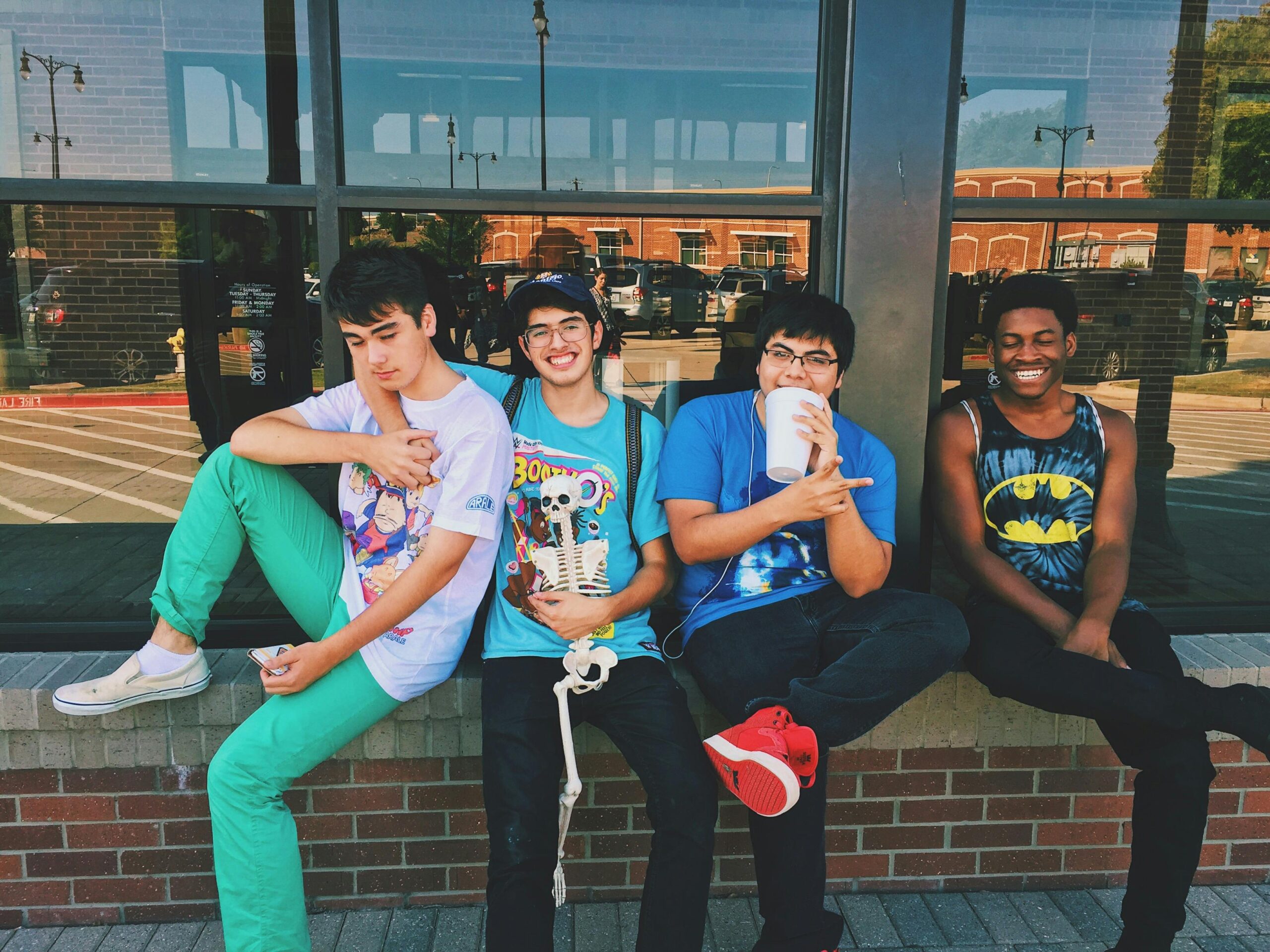
What Your Child’s Friendships Say About Their Heart
What Your Child’s Friendships Say About Their Heart
Last week, a mom sat in my office fighting back tears. “My daughter had three kids over for her birthday,” she said. “Three. Meanwhile, my neighbor’s daughter had twenty-five.” She paused, looking almost embarrassed. “Does that mean something’s wrong with her? With us?”
I leaned forward. “Tell me about those three kids.”
Her face softened. “Oh, they’re wonderful. They built a blanket fort that lasted until Tuesday. They made up an entire language only the four of them understand. When my daughter scraped her knee last month, one of them brought her homemade cookies every day for a week.”
“So your daughter,” I said gently, “has cultivated the kind of friendships most adults spend their whole lives searching for. And you’re worried because it’s not twenty-five?”
If you’ve ever found yourself counting your child’s friendships like social currency, wondering what their relationships reveal about who they are—or who they’re becoming—you’re asking one of the most important questions a parent can ask. Because what your child’s friendships say about their heart isn’t measured in quantity. It’s written in the quality of connection, the depth of trust, and the ways they’re learning to show up for others.
Why Friendships Are Windows to Your Child’s Inner World
Here’s what most parenting books won’t tell you: your child’s friendships aren’t just playdates and group chats. They’re the laboratory where they’re experimenting with the most essential human skills—empathy, trust, conflict resolution, and belonging. According to research from the American Psychological Association, children who develop even one close, stable friendship show significantly higher emotional resilience and lower anxiety than those with larger but more superficial social circles.
Think of friendships as mirrors. They reflect back to your child who they believe they are and who they’re capable of becoming. A child who gravitates toward one loyal friend isn’t “missing out”—they’re likely someone who values depth and authentic connection. A child who flits between groups might be developing adaptability and social flexibility. And yes, the child who struggles to maintain friendships? They’re not broken. They’re showing you exactly where they need gentle guidance and support.
The beauty of Attachment Theory—and I promise I’ll keep this jargon-free—is that it teaches us that children learn how to be in relationships by watching how we are in relationships. Your child’s friendship patterns often echo the emotional safety and connection modeled at home. When they feel securely attached to you, they’re more likely to form secure, healthy bonds with peers. When they see you navigate conflict with grace, apologize with humility, and maintain boundaries with love, they’re absorbing a masterclass in emotional intelligence.
What Different Friendship Styles Really Mean
Before we panic about our child’s social life, let’s decode what we’re actually seeing:
The Deep Connector (One or Two Close Friends)
This child knows their own heart. They’re selective because they’ve already figured out that real connection requires vulnerability, and vulnerability requires safety. They’re not antisocial—they’re intentionally social. These are often your sensitive, creative, or highly empathetic kids who would rather have one meaningful conversation than ten superficial ones.
The Social Butterfly (Many Friendships Across Groups)
This child is building a beautiful skill: the ability to connect across differences. They’re adaptable, curious, and energized by variety. The key thing to watch? Are they able to go deep when they need to, or are they skimming the surface to avoid being truly known? There’s a difference between healthy social flexibility and emotional hiding.
The Friendship Struggler (Difficulty Making or Keeping Friends)
First, breathe. This isn’t failure—it’s information. These children are often dealing with lagging social skills (which are 100% teachable), sensory sensitivities, anxiety, or past friendship wounds that make trust feel dangerous. What they need isn’t criticism; it’s coaching, patience, and repeated experiences of safe connection—starting at home.
Five Ways to Nurture Your Child’s Friendship Heart
The good news? You have more influence than you think. Here are practical, emotionally intelligent tools you can use right away:
1. Become a Friendship Anthropologist
Instead of asking “How was your day?” (guaranteed to get a grunt), try: “Who made you laugh today?” or “Who would you rescue first in a zombie apocalypse?” Get curious about how your child experiences their friendships, not just how many they have.
2. Normalize Friendship Seasons and Changes
Say things like: “You know, friendships are like plants—some are perennials that come back year after year, and some are wildflowers that bloom beautifully for just one season. Both are valuable.” This gives kids permission to grieve losses without feeling like failures.
3. Coach Conflict, Don’t Rescue
When your child faces friendship drama (and oh, they will), resist the urge to fix it. Instead, ask: “What do you think you need here—to be heard, to solve it, or just to vent?” Then role-play hard conversations together. “Want to practice what you might say to Emma tomorrow?”
4. Model Authentic Friendship
Let your kids see you nurture your own friendships. Talk on the phone with your best friend where they can hear you. Say things like, “Aunt Sarah and I disagreed about something yesterday, and we talked it through. That’s what people who love each other do.”
5. Celebrate Their Specific Friendship Strengths
Instead of “You’re such a good friend,” try: “I noticed you checked in with Marcus when he seemed sad. That’s real empathy.” Specificity builds identity. It tells them exactly what their heart is capable of.
| Tool | What It Does | How to Try It |
|---|---|---|
| Friendship Anthropologist | Deepens your understanding of their social world | Ask specific, playful questions about their daily interactions instead of generic “how was school?” |
| Normalize Seasons | Reduces shame around friendship changes | Use nature metaphors to explain that not all friendships last forever—and that’s okay |
| Coach Conflict | Builds social problem-solving skills | Role-play difficult conversations; ask what kind of support they need rather than swooping in to fix |
| Model Friendship | Shows them what healthy relationships look like | Let them witness you maintaining your own friendships, including working through disagreements |
| Celebrate Specifics | Builds friendship identity and confidence | Point out exact moments when they showed empathy, loyalty, or kindness to friends |
The Heart of the Matter
Here’s what I wish every parent knew: what your child’s friendships say about their heart has nothing to do with being the most popular kid in the cafeteria. It has everything to do with whether they’re learning to be authentically themselves, to trust others with their tenderness, and to show up—even when it’s messy. That mom from my office? By the end of our session, she wasn’t counting heads at birthday parties anymore. She was celebrating a daughter who already knows what so many adults are still learning: that three people who truly see you are worth more than twenty-five who only know your name. Your child’s heart is already speaking through their friendships. Your job isn’t to rewrite the story—it’s to help them read it with compassion, curiosity, and hope.



